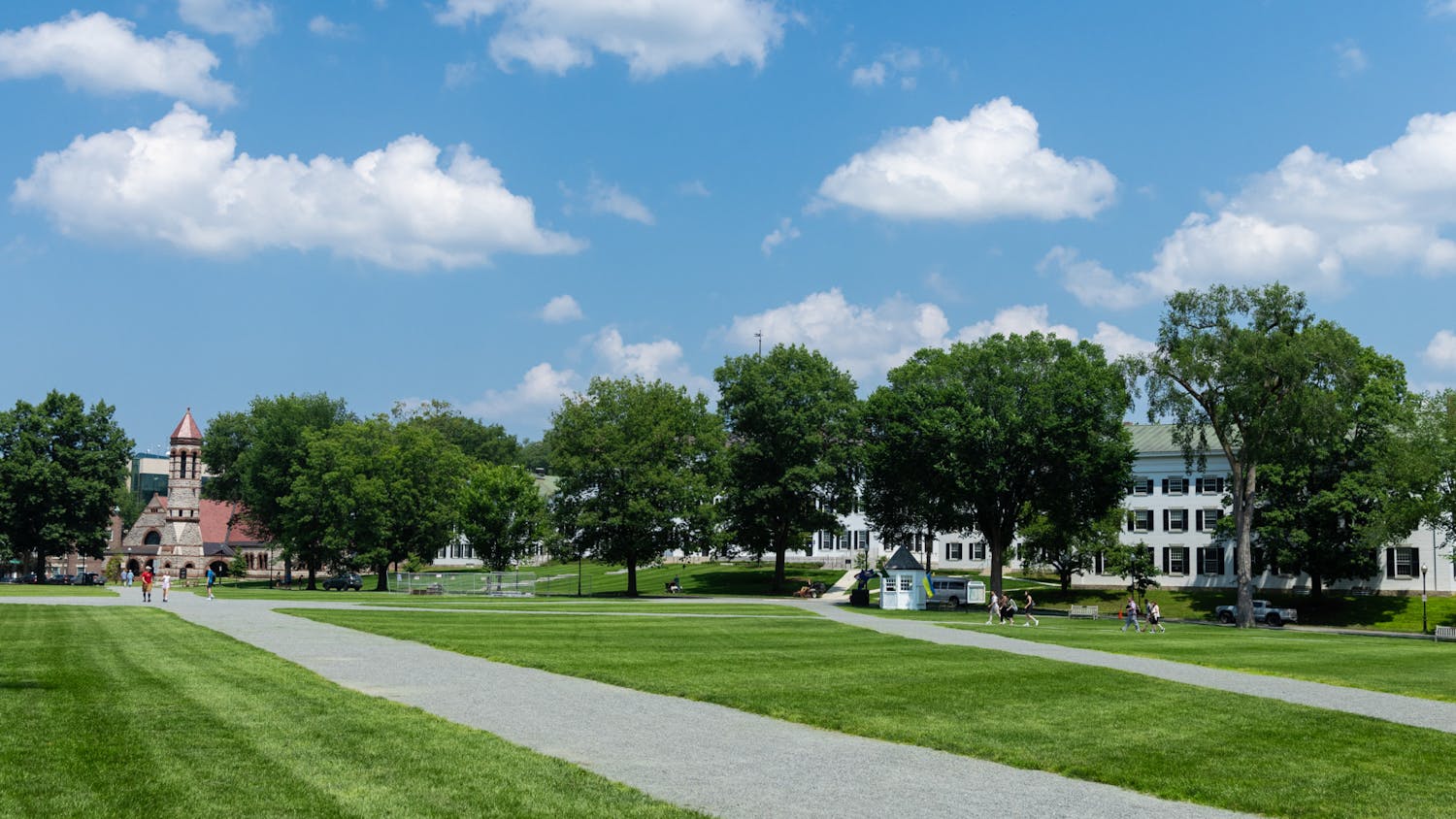As the Class of 1998 began its final term at the College three weeks ago, many seniors scrambled to fulfill the requirements for graduation, including completion of one "interdisciplinary" course.
This year's graduating class is the first one to face the new requirements formally implemented four years ago.
Last month, the College Course Steering Committee mailed notices to members of the Classes of 1999, 2000 and 2001 warning "if too many people wait until their senior year, there could be real enrollment pressures on the limited number of Interdisciplinary courses available."
This term, eight courses were offered that carry interdisciplinary credit.
Computer Science Professor Scot Drysdale, who co-teaches College Course 23: Science, Fiction and Science Fiction, an interdisciplinary course, said although the class had a cap of 60 students, over 100 wanted to enroll.
History Professor Leo Spitzer, who co-teaches Jewish Studies 37, said the class had over 100 people on its waiting list.
Around 200 students are currently enrolled in Physics 1: Understanding the Universe: Physics Through the Ages, also an Interdisciplinary course.
Courses satisfying the "I" distributive requirement are usually larger than normal courses, according to College Registrar Thomas Bickel. He attributed their large enrollment to the small number of interdisciplinary courses available and the courses' large lecture style.
But not all "I" courses are large. Nine students are currently enrolled in Biology 9: Introduction to Data Analysis.
Bickel said around 10 courses per term carry the Interdisciplinary credit.
He said this year's seniors appear to be fulfilling the "I" requirement at the same rate as any other requisite for graduation, and there is not "an excessive number" of seniors completing the "I" requirement this term.
Richard Kremer, co-professor of Physics 1, said he believes that many of the 186 students enrolled in his course are taking it for the "I" credit.
Spitzer said there were people desperate to get into his Jewish Studies 37 course because they needed the "I" credit, but many students also enrolled because of its material.
Emily Trinks '98 said she is in his class this term not only because she needed the Interdisciplinary credit, but because she was interested in the material.
Sarah Snyder '98 said she had wanted to take Jewish Studies 37 in the past and the Interdisciplinary credit was "a bonus."
Elizabeth Carpenter '01 said she is taking College Course 23 because she is interested in the material and not because of the "I" requirement.
Bickel said he hopes there will be an increase in the number of "I" courses offered, but he does not know of any plans.
But some professors do not see any merit in the "I" requirement at all.
Thomas Roos, co-professor of Biology 9, said the "I" requirement is "fake" and "all the 'I' courses taught are not interdisciplinary."
"In my view, it is only a true interdisciplinary course if it is taught through different disciplines and not just different departments," he said. He said a course combining two humanity subjects is not truly interdisciplinary.
The requirement seems to be here to stay, though, and despite the large class sizes, most professors do not seem to mind.
Spitzer said he "is all for" the "I" requirement and "people should take more than one" interdisciplinary course.
English Professor Laurence Davies, co-professor of College Course 23, said he is "very enthusiastic" about "I" courses. He said "a lot of the most intellectual activity happens at the meeting points of discussion" and noted that biochemistry originated from the overlapping of two subjects.
Many students also support the "I" requirement. Carpenter said her interdisciplinary course, College Course 23, is the "perfect melding of technical and literary aspects."
Phillip Cheung '97 said the concept of "I" courses is good in general because "lots of things are interrelated."



